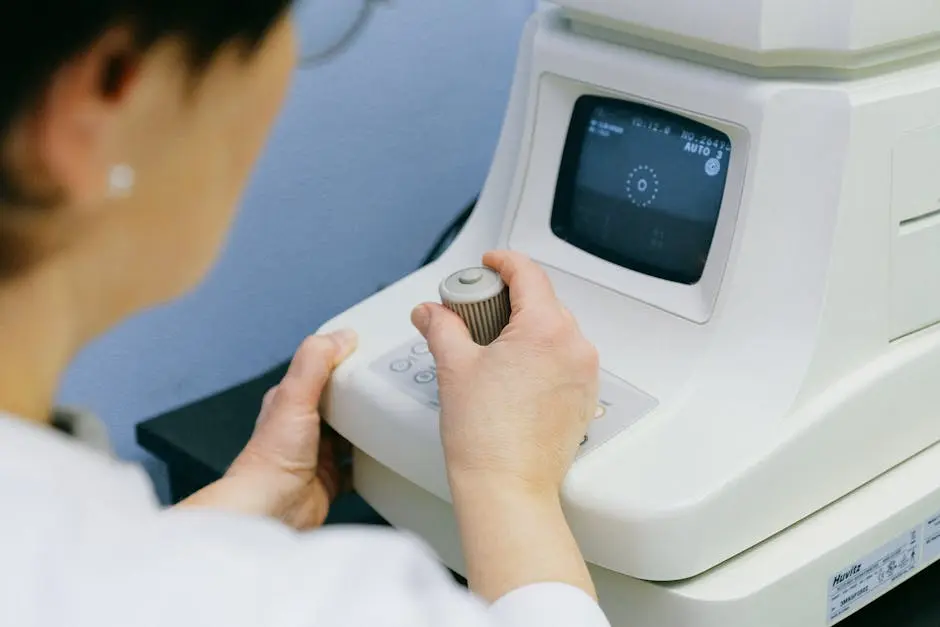
Caring for your retinas is an essential part of maintaining your overall eye health and quality of life. In this blog, we will explore the importance of retina care and how it can positively impact your daily activities and long-term well-being.
Understanding the Basics of Retina Health
The retina is a vital part of the eye responsible for converting light into neural signals that the brain interprets as images. Keeping it healthy is essential for clear vision and overall eye function. Understanding how your retina works can empower you to take better care of it. Interestingly, the retina is composed of a delicate layer of tissue lining the back of the eye, and its health is dependent on a network of blood vessels that supply it with essential nutrients and oxygen.
Imagine the retina as a highly sensitive part of your camera. When it functions well, it captures clear and vivid images. However, any disruption in its function can lead to blurriness or distortion in vision. This is why understanding the basics of retina health is so important. An excellent first step is to familiarize yourself with the symptoms that indicate potential retinal issues, such as sudden vision loss, seeing floaters, or experiencing light flashes.
Common Retinal Conditions to Be Aware Of
Some common retinal conditions include age-related macular degeneration (AMD), which is the leading cause of vision loss among people over 50. Another condition is diabetic retinopathy, a complication of diabetes that affects the blood vessels in the retina. Recognizing the symptoms early, such as blurry vision or dark spots, is key to managing these conditions effectively. Retinal detachment is yet another critical condition where the retina pulls away from its supportive tissue, requiring immediate medical attention.
Eyes are often described as windows to the broader health of your body. Conditions like diabetic retinopathy not only affect your vision but also offer clues about your overall health. For instance, uncontrolled blood sugar levels can damage retinal blood vessels over time. Keeping an eye on the early signs of these conditions can make a significant difference. Regular check-ups and awareness of these symptoms can lead to early diagnosis, allowing for more effective management and better outcomes.
Practical Tips for Preventing Retina Damage
To protect your retinas, maintain a healthy diet rich in antioxidants. Foods like leafy greens, fish rich in omega-3 fatty acids, and colorful fruits can contribute significantly to eye health. Wearing sunglasses to block harmful UV rays is another simple yet effective measure. Additionally, ensure regular eye check-ups to catch issues early. Quitting smoking is crucial as it significantly reduces the risk of developing retinal conditions.
Another vital practice is to keep your blood pressure and cholesterol levels in check. High levels can negatively impact your retinal health. Engaging in regular physical activity can help maintain not only your general health but also your eye health. Lastly, take breaks during tasks that require prolonged focus, like working on a computer or reading, to reduce eye strain.
The Role of Regular Eye Exams in Retina Care
Regular eye exams are essential in retina care, offering invaluable insights into the health of your retinas. They allow eye care professionals to detect and monitor changes in retinal health that could affect your vision over time. During a comprehensive eye exam, optometrists can identify signs of diseases such as AMD or diabetic retinopathy, often before you notice symptoms. This proactive approach enables the initiation of treatment at an early stage, when it’s most effective.
Eye exams do more than just evaluate your vision; they provide a window into your overall health, too. Conditions like hypertension and diabetes can be detected through an eye exam. Optometrists can also assess your risk for potential retinal disorders, designing a personalized eye health strategy to keep your vision clear and sharp. Ensuring regular visits to an eye care professional is one of the best ways to protect your sight and, subsequently, your quality of life.
Treatment Options for Retinal Disorders
If diagnosed with a retinal disorder, treatment options may include medication, laser therapy, or surgery. Treatment plans are tailored to the specific condition and individual needs. For instance, anti-VEGF injections are common for treating wet AMD, helping to slow vision loss. Laser therapy might be recommended for certain types of diabetic retinopathy to reduce blood leakage and swelling in the retina.
In cases of retinal detachment, immediate surgical intervention is often necessary to prevent permanent vision loss. Procedures such as pneumatic retinopexy involve injecting a gas bubble into the eye to press the retina back into place. Another option, scleral buckle surgery, creates a band around the eye to hold the retina in position. Your eye care professional will discuss the most suitable treatment pathway, considering factors like the condition’s severity and your overall health.
Embrace Better Vision Through Retina Care
Prioritizing retina care is crucial for maintaining optimal vision and a high quality of life. By understanding common retinal conditions, prevention tips, and treatment options, you can take proactive steps toward better eye health. Always remember to consult with a trusted eye care professional for any concerns about your retina health.

